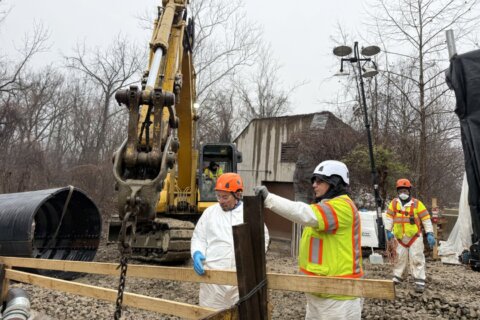WASHINGTON — Montgomery County Executive Ike Leggett says local taxes would go up if the county were to privatize the sale of alcohol.
Right now the county has a monopoly on the sale of beer, wine and liquor. The county’s Department of Liquor Control generates more than $30 million in revenue each year.
Leggett argued against privatizing liquor sales at a public hearing with the county’s delegation to the Maryland General Assembly on Monday night.
“This is irresponsible. This will not help our county, it will set us back,” Leggett says.
He says that if the county gets out of the business of selling alcohol, it would mean a tax increase of at least $100 per household.
County Councilman Hans Riemer, who chaired a special committee on liquor control for the past year, agrees that it will cost the county, but not as much as Leggett estimates.
“Perhaps as much as $5 million a year,” Riemer says.
Critics of privatization contend that nearly 400 county workers, who work in the sale and distribution of alcohol in the county, could lose their jobs.
Riemer says the committee’s proposed comprehensive plan will manage the financial loss by creating a more efficient and profitable Department of Liquor Control. He also says there will be new store revenue and a new distribution charge.
Mark Longsworth spoke at the hearing as a representative of The County Vintner. The Vintner is a regional distributor of special-order wines and spirits. He says the county would be better served by moving forward with bill MC 7-16, which would allow privately licensed Maryland wholesalers to sell and distribute certain beer and wine products.
During the coming session, state lawmakers will consider several bills to privatize alcohol sales in the county. A bill proposed by Del. Bill Frick, D-Montgomery, would give county voters the chance to decide whether the county should maintain its monopoly. The issue would be on the November 2016 ballot.
The measure, which is supported by many restaurants, would allow the county to maintain its wholesale sales, but also give businesses the option of purchase from private vendors.
Supporters of the measure say it would address concerns that have been raised about delayed alcohol deliveries and restrictions on what can be purchased.







